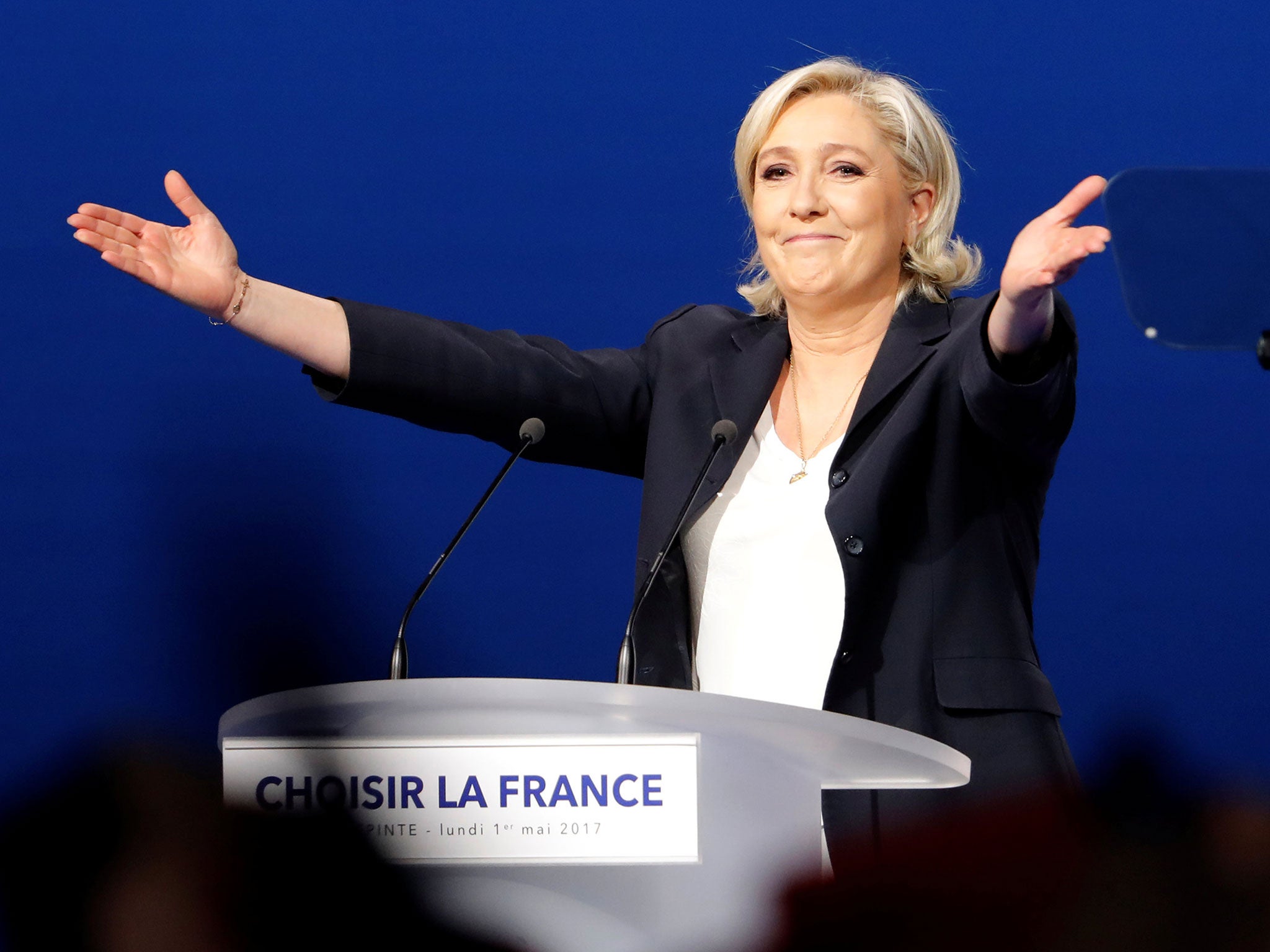Left-wingers who fail to vote against Marine Le Pen are fooling themselves
Rejecting candidates because they are ‘not left-wing enough’ and letting a right-winger win instead is a bad form of tactical voting, in France or anywhere else

Your support helps us to tell the story
From reproductive rights to climate change to Big Tech, The Independent is on the ground when the story is developing. Whether it's investigating the financials of Elon Musk's pro-Trump PAC or producing our latest documentary, 'The A Word', which shines a light on the American women fighting for reproductive rights, we know how important it is to parse out the facts from the messaging.
At such a critical moment in US history, we need reporters on the ground. Your donation allows us to keep sending journalists to speak to both sides of the story.
The Independent is trusted by Americans across the entire political spectrum. And unlike many other quality news outlets, we choose not to lock Americans out of our reporting and analysis with paywalls. We believe quality journalism should be available to everyone, paid for by those who can afford it.
Your support makes all the difference.Apparently, some of the supporters of Jean-Luc Mélenchon, the leftist candidate who came fourth and who was eliminated in the first round, are intending to vote for Marine Le Pen in the second round of the French presidential election tomorrow. This is a point of view that is echoed among a small group of political activists in most countries, including the United States and the United Kingdom.
In America, it was reflected by some supporters of Bernie Sanders, the “socialist” candidate for the Democratic nomination, who said that it would be better to have Donald Trump as president than Hillary Clinton. After this week’s vote in the House of Representatives to repeal parts of Obamacare that offer protection to the old, poor and those with existing illnesses, this ought to be a difficult argument to sustain.
In truth, not many did sustain it. The vast majority of Mr Sanders’s supporters, after a bit of posturing, knuckled under and voted reluctantly for Ms Clinton. The unsettling thing about the US election, however, is that it was decided by such a narrow margin in the swing states that the Sanders refuseniks might have helped put Mr Trump in the White House.
In Britain, a strain of support for Jeremy Corbyn poured scorn on the other candidates for the Labour leadership as “red Tories” and insisted that, if the party were led by Liz Kendall, Yvette Cooper, Andy Burnham or Owen Smith, there would be no point in voting Labour as it would be the same as voting Conservative. Again, such fundamentalism has served the main left-of-centre party badly. This week’s local elections suggest that Labour is heading for its worst showing in a general election than at any time since 1931. It is not absurd to suggest that, if Labour were led by any of the other candidates, it would be in a better position now.
Finally, in a sort of international limbo, partly in cyberspace and partly in a broom cupboard in the Ecuadorian embassy in London, we have the example of Julian Assange and his WikiLeaks. He and it started as a crusade for openness against the global elite, but they now find themselves the unwitting allies of an authoritarian Russian government and the enemy of candidates such as Ms Clinton, who have a better claim to stand for social justice and internationalism than their opponents.
It is no coincidence that WikiLeaks, if it was not responsible for hacking into the emails of the campaign of Emmanuel Macron, has joined in the dissemination of the leaked material. Mr Macron’s opponent is the pro-Putin Ms Le Pen. Nor is it a coincidence that WikiLeaks and Vladimir Putin were implicated in the leaks of Democratic Party emails in the US election campaign, to the benefit of Mr Trump, the pro-Putin candidate (even if he has not been a particularly pro-Putin president so far).
This is a rather feeble and late attempt to intervene in the election campaign – there does not appear to be anything of interest in the emails. Fortunately, the last opinion polls published before the ban on their publication on the day before polling day, suggest that Mr Macron has a commanding lead of more than 20 percentage points. Let us hope that the polls are as accurate in the second round as they were in the first.
We should not be complacent about the result, however, and we should not allow it to obscure the poor reasoning of voters who think of themselves as on the left who end up voting for the xenophobia of Ms Le Pen. Mr Mélenchon carried out a poll of the supporters of his La France Insoumise movement. Only 35 per cent called for a vote for Mr Macron. Mr Mélenchon did not offer the option of advocating a vote for Ms Le Pen, but 65 per cent wanted to abstain or spoil their ballot papers. These people, following the cowardly lead of Mr Mélenchon himself, may imagine that by not voting they are withholding their support for Ms Le Pen, but in fact they are saying that there is no difference between the two candidates. It may not matter this time, but it could matter in future. Not voting against the Front National could one day be the same as voting for it. These people do not know their left from their right.
Tactical voting is an issue in our election in Britain, but to be effective tactical voting has to be informed and intelligent. So-called left-wingers abstaining or voting for Ms Le Pen are neither.
Join our commenting forum
Join thought-provoking conversations, follow other Independent readers and see their replies
0Comments